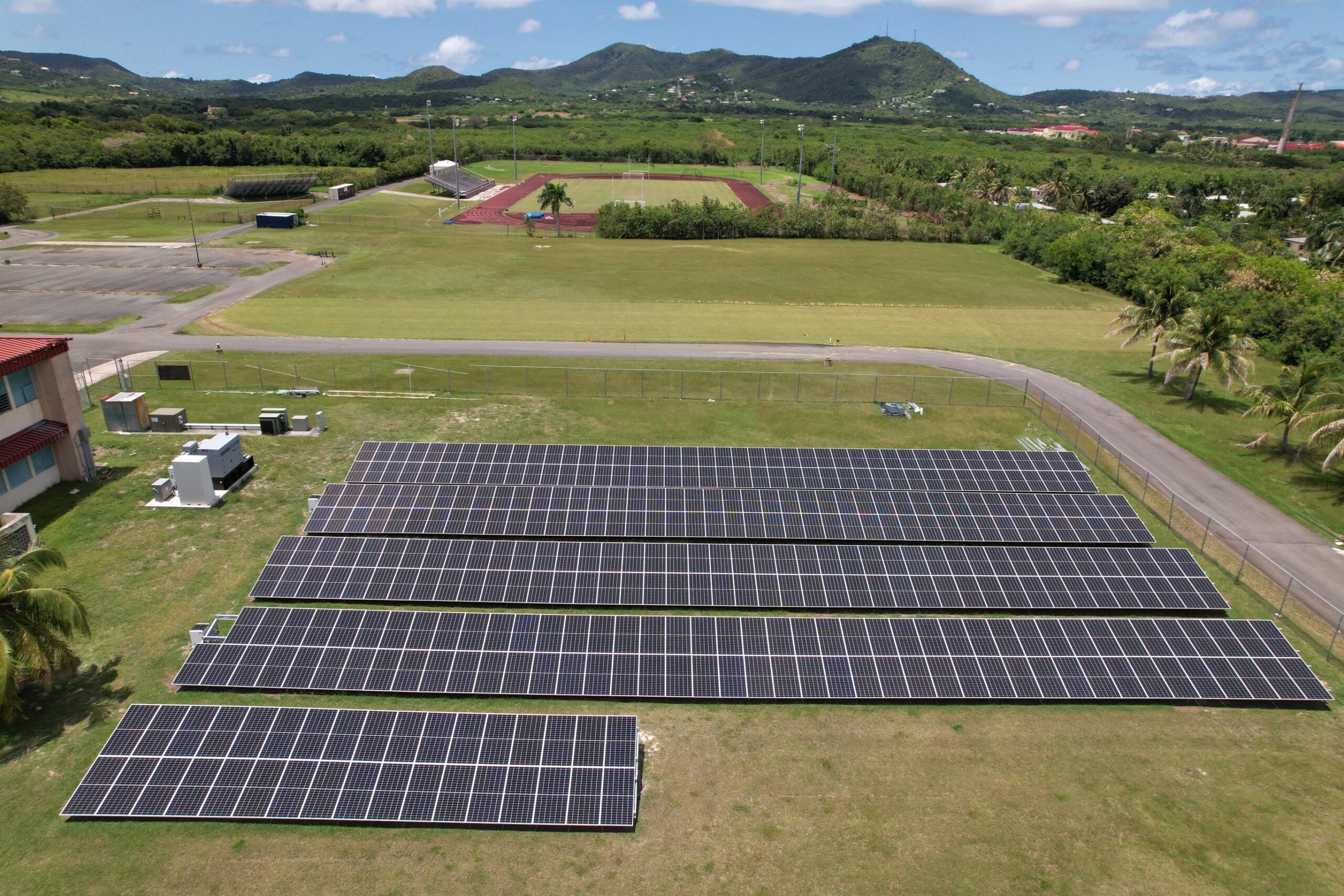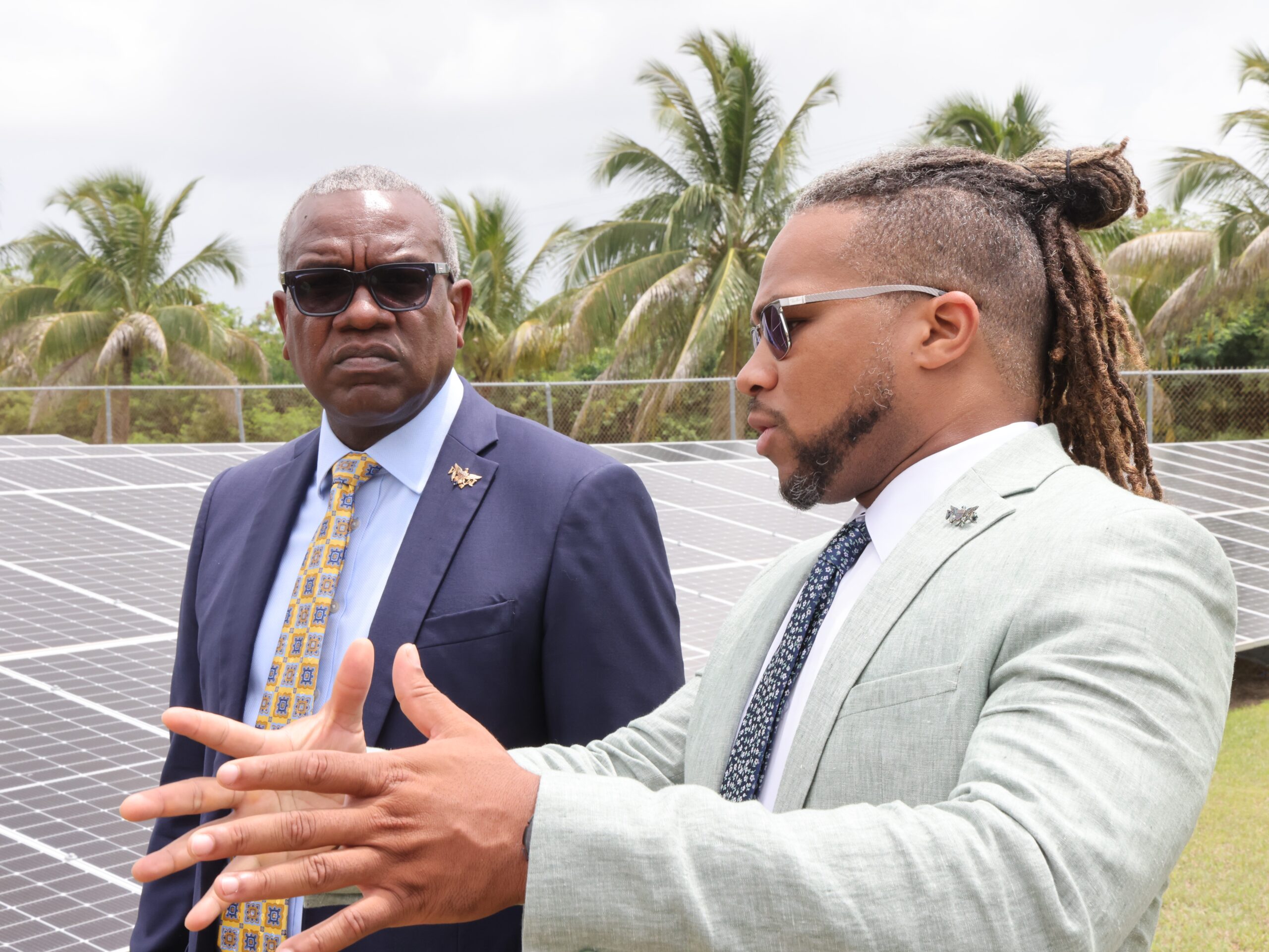
The groundbreaking ribbon cutting for the St. Croix Educational Complex (SCEC) Emergency Shelter Micro-Grid took place Tuesday, the V.I. Education Department announced. This event marks a significant milestone in the journey towards sustainable energy for the Virgin Islands.
The ceremony, held at the SCEC campus, was attended by esteemed guests and speakers including Gov. Albert Bryan Jr., Lt. Gov. Tregenza A. Roach, Esq., Senate President Novelle E. Francis Jr, VIDE Commissioner Dionne Wells-Hedrington, Director Kyle Flemming of the Energy Office, and SCEC Principal Rodney E. Moorehead, according to the press release.
“This marks a big step toward continued leadership in energy efficiency throughout the Caribbean,” Bryan said. “This project paves the way for other micro-grids to be established across critical areas in the Virgin Islands, ensuring that education will not be disrupted by power outages. We are building a better tomorrow for future generations.”
Funding for this transformative project was secured in 2020 by the Virgin Islands Energy Office and the Virgin Islands Education Department’s American Rescue Plan Act federal funds, reflecting a strategic investment in renewable energy infrastructure. The initiative aimed to develop a solar-plus-storage micro-grid pilot project at the SCEC emergency shelter, with construction commencing on April 14, 2023, the press release stated.
The SCEC Emergency Shelter Micro-Grid, generously funded by federal resources, comprises a 150-kW solar array coupled with a 300-kW battery system. This innovative solution not only supports the school’s operational needs but also ensures resilience during emergency conditions, reducing reliance on traditional fossil fuel generators, the release stated.

During normal operations, the solar system is projected to offset approximately $9,000 per month in electrical utility costs, demonstrating significant cost savings for the VIDE on SCEC’s electric bill, it said.
V.I. Energy Director Kyle Fleming said the 150 kW Solar plus 220 kWh Energy Storage micro-grid employs the use of solar batteries and provides backup energy generation to ensure that the emergency shelter sections of the SCEC are all able to operate in the event of an outage, according to the release.
“Systems like these are going to represent, more and more, critical infrastructure across the territory,” Fleming said. “These will become normal at government facilities and critical community centers as we develop renewable energy and energy resiliency at our most critical facilities across the USVI.”

Additionally, under blue-sky conditions, the solar micro-grid will aid in saving $10,000 per month in utility costs. This substantial cost-saving measure demonstrates tangible environmental and financial benefits — an exemplary case study poised toward long-term financial sustenance while significantly conserving resources, the release stated.
“The solar power offsets the utility costs of the school every single day when the sun shines,” Fleming said.
The micro-grid farm encompasses 375 panels generating 150 kW hours with 24-hour backup capability that can withstand wind speeds up to 180 mph, according to the release.





